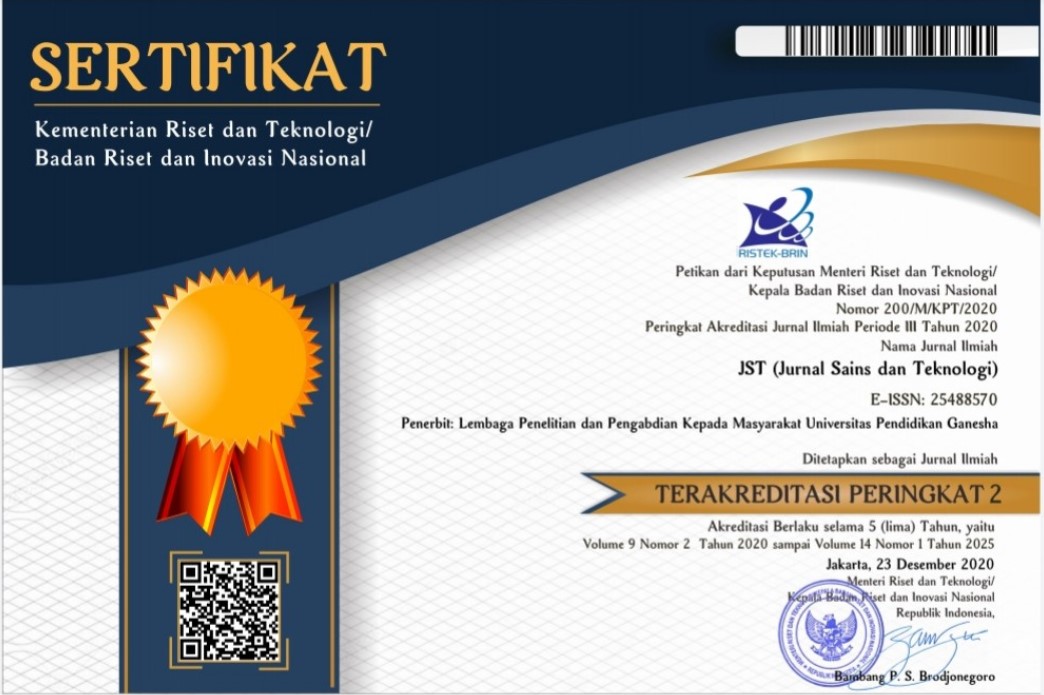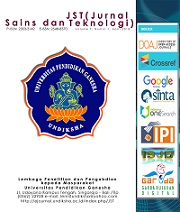PENGEMBANGAN HYPERTEXT SAINS KEARIFAN LOKAL BALI BERBASIS DATABASE
DOI:
https://doi.org/10.23887/jstundiksha.v1i1.6023Abstract
Penelitian dan pengembangan ini bertujuan menghasilkan hypertext wahana komunikasi sains kearifan lokal Bali (SKLB) yang efektif. Penelitian tahun/ tahap kedua ini melakukan identifikasi lanjut dan perluasan isi hypertext SKLB kedalam rancangan yang dihasilkan pada penelitian tahun pertama dan validasi kemudahan akses dan efektifitas komunikasi hypertext SKLB secara on-line (internet) berdasarkan tanggapan pengunduh. Penelitian berhasil menambahkan enam konsep utama dan sejumlah sub-ordinat dan memutahirkan program hypertext SKLB sehingga hypertext SKLB total menyajikan database 52 konsepsi (9 konsep utama dan 43 konsep sub-ordinat). Mayoritas pengunduh dari berbagai kalangan (siswa SMP dan SMA, mahasiswa, guru IPA, dan masyarakat umum) memberikan tanggapan positif terhadap aspek-aspek isi dan tampilan hypertext SKLB. Hypertext SKLB dapat diunduh baik dari kota kabupaten, kecamatan, dan desa di Bali yang dijangkau handphone dan menunjukkan kinerja cukup baik.Downloads
How to Cite
Nyoman Sudria, I. B. (2015). PENGEMBANGAN HYPERTEXT SAINS KEARIFAN LOKAL BALI BERBASIS DATABASE. JST (Jurnal Sains Dan Teknologi), 1(1). https://doi.org/10.23887/jstundiksha.v1i1.6023
Issue
Section
Articles
License
Authors who publish with the Jurnal Sains dan Teknologi (JST) agree to the following terms:
- Authors retain copyright and grant the journal the right of first publication with the work simultaneously licensed under a Creative Commons Attribution License (CC BY-SA 4.0) that allows others to share the work with an acknowledgment of the work's authorship and initial publication in this journal.
- Authors are able to enter into separate, additional contractual arrangements for the non-exclusive distribution of the journal's published version of the work (e.g., post it to an institutional repository or publish it in a book), with an acknowledgment of its initial publication in this journal.
- Authors are permitted and encouraged to post their work online (e.g., in institutional repositories or on their website) prior to and during the submission process, as it can lead to productive exchanges, as well as earlier and greater citation of published work. (See The Effect of Open Access)
















